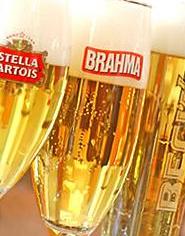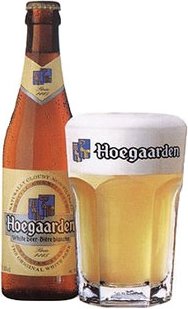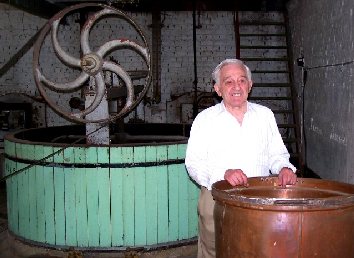 |
 |
|

|
|

|
 |
home
about
Protz
features
A-Z
books
|
|
Protz:
features
reviews
tastings
news & events
books
|

| |
famous victory for Hoegaarden
by Willard Clarke, 10/07
As a result of protests from consumers and the people of the small town of Hoegaarden in Belgium, InBev has backed down and saved a famous brewery from closure.
InBev is the world's biggest brewer, best known for Stella Artois. It announced in mid-September that it plans to invest sixty million euros in its Belgian plants in Leuven, Liege and Hoegaarden in order to keep pace with world-wide demand for both its lager and wheat beers.
Behind this statement lies a major climbdown. The group was previously known as Interbrew and was Belgian-owned. The name changed when it merged with Ambev of Brazil.
The new group leapfrogged Anheuser-Busch, producer of American Budweiser, to become the biggest brewer. Centralisation of production became the driving force of InBev and Hoegaarden was just one of many plants to face the axe.
|
|

|
Two years ago, InBev faced protests and demonstrations in Belgium when it announced it would close Hoegaarden and transfer production to its giant lager factory at Jupille, near Liege. In one fell swoop, InBev planned to kill a famous beer style, make several hundred workers redundant and rip the heart out of a small town where the brewery was the main employer.

|
|
Moving production to Liege was grossly and almost unbelievably insensitive in Belgium. Hoegaarden is a Dutch-speaking area, Liege is French-speaking. Such things matter in a country where the cultural and language divisions run deep.
When I visited Hoegaarden last year almost every shop and home had a poster in the window announcing in Dutch "Hoegaarden brews Hoegaarden". The people were genuinely angry and a few months earlier had staged a protest rally against the closure � a rare and possibly unique event for a tiny and isolated rural community.
Hoegaarden was losing more than just a brewery and jobs. A rare beer style would disappear as well. Centuries ago, the region of Brabant was famous for it "wit" or white beers. They are beers made from a blend of barley, wheat and oats, and spiced with coriander seeds and Curacao orange peel.
|
One by one, the brewers of white beers, many based in Hoegaarden, started to close in the 20th century under the onslaught of new pale lager beers. In the 1960s, Pierre Celis, the local milkman, was discussing the loss of the local beer style with friends in a bar. Pierre did successful home-brewing and his friends encouraged him to start making white beer again on a commercial basis.
Pierre (right) moved in to a former lemonade factory and found he had a success on his hands. Hoegaarden Wit, in its famous six-sided glass, became a cult beer, especially with students in the university town of Leuven. Production soared but when fire destroyed the brewery Pierre needed help with rebuilding the site.
He was happy to take assistance from Stella Artois, based in Leuven. But things turned sour when Stella merged with Jupiler of Liege to form Interbrew. The
|
|

|
French side of the business started to put great pressure on him to produce his beer more cheaply by speeding up the production process and cutting out expensive ingredients such as oats.
Eventually he sold the company to Interbrew. The giant group boosted production enormously and turned it into a global brand while connoisseurs complained that the beer had lost some of its character in Interbrew's hands.
The move to Liege didn't work. Jupille is a vast lager production unit, churning out large quantities of Belgium's biggest lager brand, Jupiler. Hoegaarden is a type of ale and it needs different brewing temperatures and yeast strains.
Now the beer is going home, to the town where the style was based for centuries and was revived with great success by Pierre Celis in the 1960s. Pierre still lives in Hoegaarden and last week he praised InBev for its courage in realising its mistake.
But in fact it was the people of Pierre's home town who showed the real courage. They stood up to a global giant and won.
|
|
home
about
Protz
features
A-Z
books
|